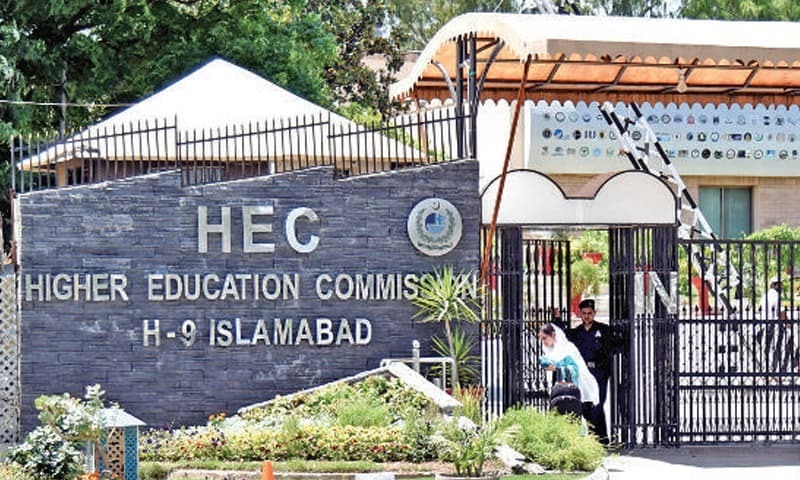ISLAMABAD: The Higher Education Commission (HEC) and the National Counter-Terrorism Authority (Nacta) have joined hands to counter extremism and terrorism through joint research and collaboration with a special focus on campus extremism.
At a ceremony held at the HEC on Thursday, both the organisations signed a memorandum of understanding (MoU) to jointly carry out research on topics related to terrorism and extremism.
The HEC and Nacta will engage faculty members and students from universities across the country in developing a national strategy to counter on-campus extremism.
Acting Executive Director HEC retired Lt Gen Mohammad Asghar and Nacta National Coordinator Khaliq Dad Lak signed the MoU.
MoU signed to jointly carry out research on topics related to terrorism and extremism
Nacta said the purpose and scope of the MoU was to foster partnership between the two organisations in combating extremism and terrorism through joint research and collaboration.
“This will help in promoting research culture in public sector as well as improving policy making process. Another main objective of the MoU is to enhance awareness/prevention against extremist ideologies and mindset and to provide education on the topics of counter extremism and counter terrorism through participatory approach of the HEC and to increase awareness programmes through the support of HEC.”
It was decided that awareness programmes and activities would be initiated for students in area of counter-extremism, de-radicalisation and counter-terrorism through seminars, workshops, essay competitions, debates, sports events and cultural activities.
The FM radio channels of the universities will also be utilised for the purpose.
Teachers will also be sensitised and both the organisations will conduct workshops, seminars and hold discussions in this regard.
It was also agreed that steps would be taken to review the existing curriculum and make recommendations for its improvement to counter extremism, hate material, radicalisation and terrorism.
The two organisations will also find ways and means to bring madressah and university students closer for fight against extremism and terrorism. Academic, sports and extra-curricular activities will be chalked out for this purpose. Speaking at the MoU signing ceremony, the acting ED said HEC had been very actively promoting the cause of peace at universities.
He hoped that the partnership between HEC and Nacta would help sensitise students, faculty and the entire academia on the menace of extremism and terrorism.
He said universities played a very vital role in training youth and inculcating a moderate approach to life in their minds. He said Islam was a religion of peace and there was a need for promoting its true teachings. “We hope HEC and Nacta will work very closely in the years to come to address the multidimensional causes of extremism,” he added.
The Nacta coordinator appreciated the HEC for partnering with the authority in its efforts to counter extremism and terrorism. He said Nacta devised national anti-terrorism strategies and carried out research on various aspects of terrorism. He hoped that the partnership would help utilise the research conducted related to causes, threats and solutions of terrorism.
The involvement in militancy of young individuals from universities is an alarming phenomenon. Several such cases surfaced in the country in the recent past.
They included an attack on Sindh MPA Khawaja Izharul Hassan last year by a former student of the University of Karachi, the involvement of an ex-student of the Institute of Business Administration Karachi Saad Aziz in the Safoora Goth carnage, the alleged link of an MBBS student of Liaquat University of Medical and Health Science, Hyderabad, Naureen Leghari, with a militant group and the lynching of Mashal Khan by his fellow students at Abdul Wali Khan University, Mardan.
Similarly, on the campus religious or ethnic disputes between students are also common in some universities where student wings of religo-political parties have active.
Published in Dawn, October 26th, 2018
Download the new Dawn mobile app here:













































